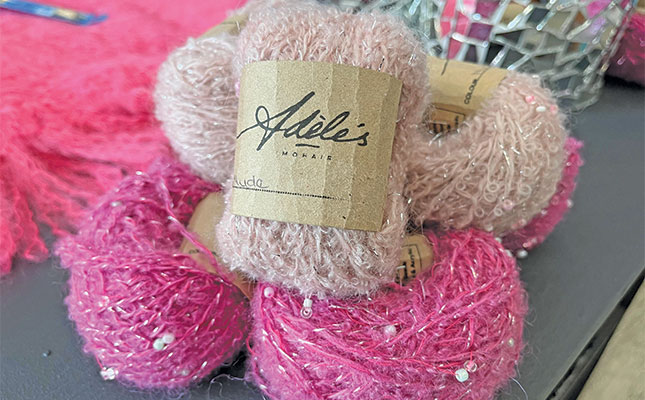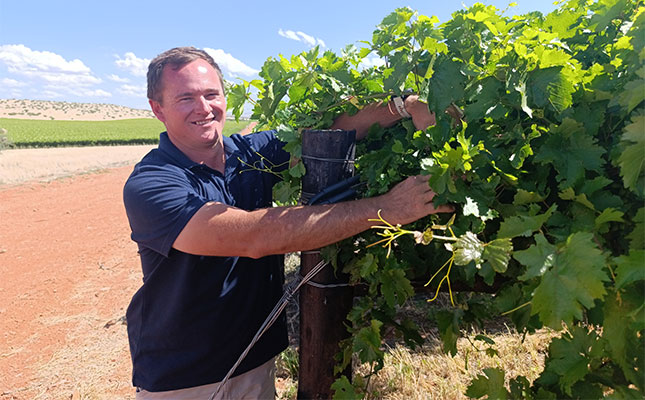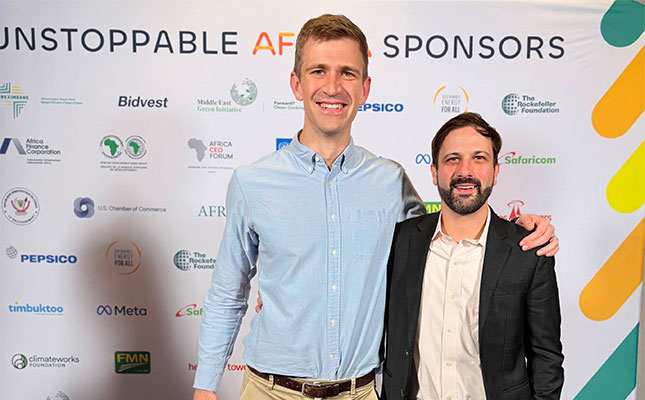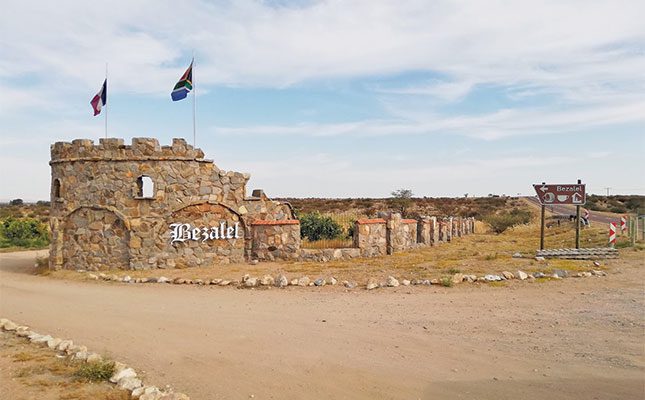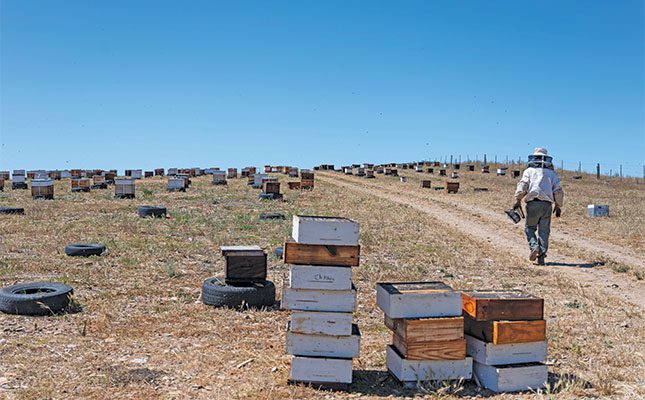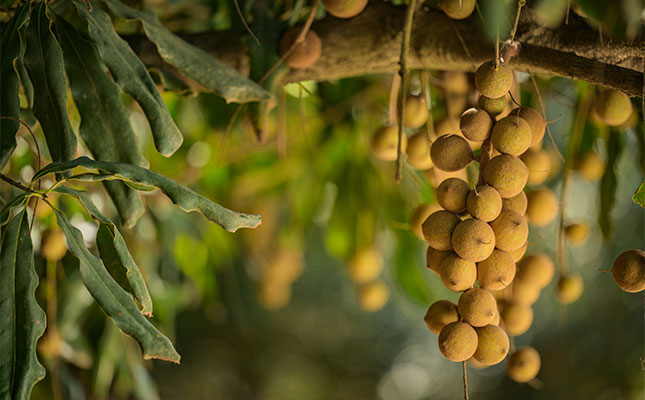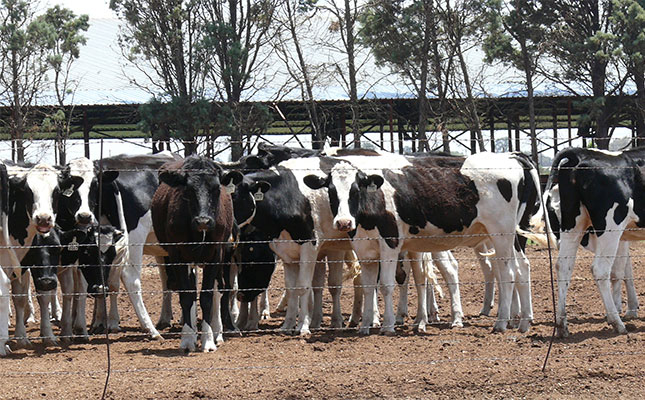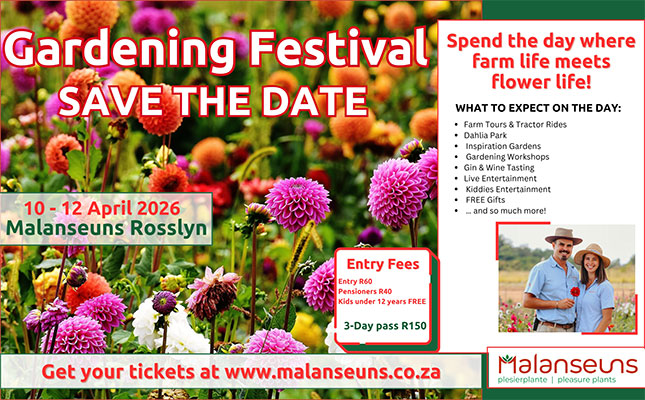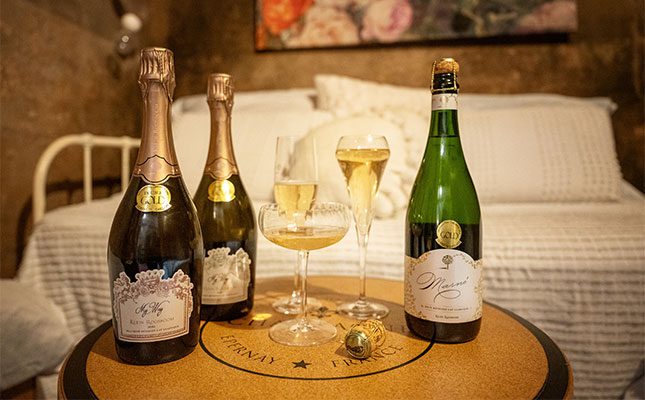
Tucked away in the heart of the Western Cape’s Durbanville Wine Valley, Klein Roosboom is more than just a wine farm. It is the embodiment of a lifelong partnership between Karin de Villiers and her late husband, Jean.
The two, both alumni of Durbanville High School, had been sweethearts since Karin was 15 and Jean 17. After matriculating, Jean studied wine production, while Karin embarked on a pharmacy degree.
But life had other plans. During Karin’s first year at university, Jean had an opportunity to buy Klein Roosboom – a 240ha dairy and tobacco and a few hectares of vineyards – from his uncle, Toelas, who was once a prominent dairy farmer.
“Jean knew he couldn’t shoulder the responsibility alone,” recalls Karin. “So, he told me plainly that he needed me to come to the farm; it couldn’t wait until I had finished my degree.”
For Karin, the decision was easy: “Life rarely follows a straight line. Adaptability is the key to resilience – a lesson I’ve passed on to my children and staff.
“People who are too rigid often hit walls and lose their way. But if you know where you’re going and stay flexible, you can weather any storm by merely adjusting your course.”
Early days on the farm
For the first 12 years on the farm, Karin managed the dairy, while Jean – whose father, Nicol, also farmed vineyards – focused on the vineyards. In one of his early projects, he replaced all the old bush vines with modern trellised vineyards to improve yields and quality.
“Jean often tried to involve me in the vineyard, but we are both strong-willed and had our own ways of doing things, so I knew better than to get involved. The vineyards were his passion; he [practically] glowed when he was working his vines,” says Karin, with a smile.
She fondly recalls a moment that captured this passion during a road trip. “Jean suddenly stopped the car, and next thing I knew, he’d got out to show workers on – who-knows-whose farm – how to prune properly. He couldn’t bear watching them do it wrong.”
Meanwhile, Karin found innovative ways to add value to the dairy. She started making yoghurt for direct sales and pasteurised milk for third-party distribution. She even did an artificial insemination course to accelerate genetic progress in their dairy herd.
In 1997, they decided to close the dairy and focus all their energy on wine grape production.
There were various reasons for this. Karin explains they found the dairy industry’s cycles faster and more volatile than those of the wine industry, while vineyard expansions left them with less land for their dry cows each year. They were also milking three times a day, every day of the year.
“I was the only woman attending the local dairy farmers’ meetings at the time. One of the older farmers, Bokkie Naudé, used to joke that the only difference between a dairy and a jail was that a dairy has open doors,” she laughs.
“And he was right. Every time we tried to take a short break, the break would be interrupted by a phone call about some crisis. Mechanisation and technology might have eased the load in modern dairies, but those early days were relentless.”
Specialisation
Initially, Klein Roosboom’s grapes were trucked more than 30km away to Bergkelder in Stellenbosch, which at the time was part of Distillers. But things changed in 1999 with the founding of Durbanville Hills Winery, a joint venture between Durbanville wine producers and Distell (now Heineken).
“Durbanville Hills was a game-changer, as it meant we could deliver wine just across the road. In fact, the winery stands on land that used to belong to us – land that wasn’t suitable for farming,” says Karin.
Still, something was missing. She explains that Jean used to pour his heart into the vineyards, but none of this passion was bottled under his own name.
So, in 2002, for Jean’s 40th birthday, Karin surprised him: “I gave him mock-up wine labels to choose from and registered the Klein Roosboom brand.”
The dream of getting Jean’s dedication bottled under his own name lingered until 2007, when his nephew, Nicholas de Villiers, restored the old wine cellar at Morgenster in Durbanville and started renting out cellar space to a handful of producers, including Klein Roosboom.
Karin has always loved sparkling wine, so she decided to make one under their label. She enrolled in a small-scale winemaking weekend course run by Wessel du Toit at the Western Cape Department of Agriculture, and afterwards started making her first sparkling wine.
However, when she realised how much work was involved – and that sparkling wine needed to remain on the lees for at least a year – she resolved to fast-track the winemaking journey.
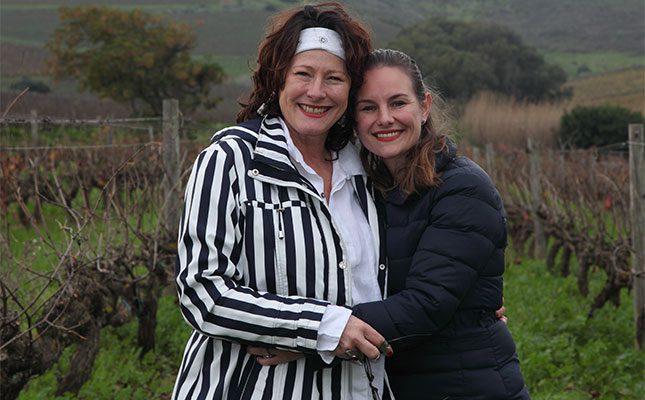
She brought in 1 000ℓ of Sauvignon Blanc juice from Durbanville Hills and, together with two barrels of Merlot from the farm, bottled their very first Sauvignon Blanc, dedicated to Jean, and a Merlot.
Karin’s early winemaking efforts were buoyed by a tight-knit group of local farmers, who had formed a boutique winery association.
“If you got stuck, you just phoned a friend and said, ‘Come taste this’ or asked, ‘What now?’ One of them was a winemaker, so when things got technical, he was the go-to. That sense of support and community gave us the courage to keep going,” she says.
Karin went on a formative trip to France, specifically the Marne Valley, to learn first-hand from traditional Champagne producers.
Wine with a story
But her approach to winemaking goes way beyond the production of award-winning wines. She has a natural gift for infusing each bottle with emotion and meaning, drawing consumers into the Klein Roosboom world through authentic storytelling.
Instead of the usual “gooseberries and red fruit” tasting notes, as she puts it, each back label features a heartfelt letter addressed to a family member, turning every bottle of wine into a deeply personal tribute.
Their first sparkling wine was particularly special. It was picked on their daughter Marné’s 17th birthday, on the lees for four, and released on her 21st birthday. The back label reads:
‘My dearest daughter Marné,
Perfectly nurtured Pinot Noir and Chardonnay grapes were picked on your birthday for our first MCC in 2007. It is only fitting that this MCC is named after you. Your vibrant personality is as sparkling as the contents of this bottle. Just as the Marne river runs through the bubbly-producing area in France, your joie de vivre flows through our family, enriching our lives in so many special ways.
Liefde, Mams’
The Johan Cabernet Sauvignon is dedicated to Karin and Jean’s youngest son, while the Nicol Merlot is dedicated to their eldest.
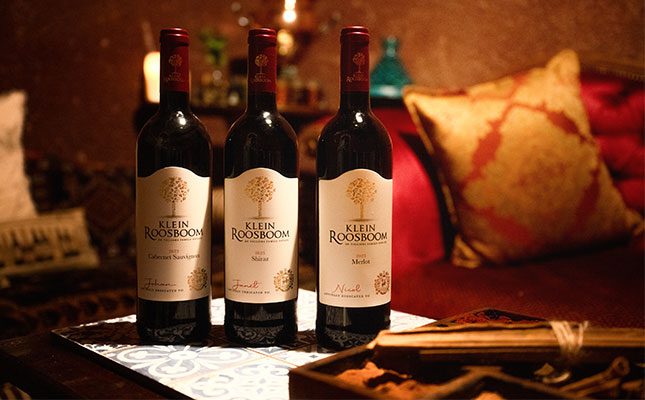
This narrative continues throughout the range. The Janet Shiraz was launched for Karin’s mother-in-law’s 80th birthday; the Marianna Rosé is in honour Karin’s own mother, Marianna Roos; while the My Way range is named after her father, Johan van der Merwe, who adored Frank Sinatra.
As the family grew, so did the stories on the bottles. New label editions, for instance, now feature baby footprints to mark the births of their grandchildren.
“People often say you need to sell a story, but we aren’t selling a story. We’re selling personal truth; something real, something others can relate to,” explains Karin.
Organic growth
Karin sold those first batches of wines via bulk SMS, an extremely novel approach at the time.
The first sparkling wines were particularly memorable, sealed with an elegant Vinolok glass closure imported from Germany; a small yet striking detail that highlighted the care, creativity, and personality poured into every bottle.
As word began to spread, people started asking to visit the farm to taste the wines. In 2009, Karin responded by converting a shed (once home to the farm’s old wine tanks and used by Jean to store implements and vehicles) into a modest tasting room.
“We set up a few barrels, I would put out some bread and cheese, stick a sign up next to the road, and lie in wait for people to come. I used a Tupperware container as a till.”
Determined to build recognition for her wines, Karin went a step further by participating in the Durbanville Valley’s Season of Sauvignon festival.
She marketed the event via Facebook, which was still new at the time. “Jean thought I was crazy to use Facebook, but I’ve learnt over the years that you have to keep up with technology or you’ll fall behind,” she says.
From those humble beginnings, the Klein Roosboom tasting experience began to grow. To create more space, Karin repurposed the eight old wine tanks (whose walls Jean had previously knocked out to create storage space) into “tasting caves”.
The caves, each with its own theme, have become so popular that bookings are made weeks in advance.
“Jean used to tease me that I was working him out of every room on the farm,” she says, smiling.
Around 2012, after studying interior design, Marné brought her own creative flair to the farm by opening a small shop inside the tasting room, where she sold renovated and upcycled furniture and curated home goods.
It was, by all accounts, completely chaotic, but in a charming way. “The pipes from one of the tanks used to run right underneath an old French bed with crisp white cotton linen,” recalls Karin. “I used to bottle the wine there, right in the middle of it all.”
When Karin started running out of space, they converted one of the farmhouses into a shop. The shop space was initially rented to a third party, who was only allowed to sell Klein Roosboom wine, but around 2016 they decided to run the shop themselves, and later turned it into a restaurant.
A year of growth and grief
In 2017, Jean had his best harvest yet. “He told me he’d finally mastered the art of working the vine,” recalls Karin.
Sadly, though, he passed away later that year.
What followed were some really challenging years. They had drawn up plans to expand the restaurant in 2016 and were supposed to start with the expansions in 2017.
“I felt overwhelmed, suddenly having to oversee everything. So, I put the building plans on ice until 2018, which lead to the opening of the Jean restaurant in 2019, just before the COVID-19 pandemic [hit], which brought even more challenges.”
Along with this, they endured two years of drought following Jean’s passing.
Realising Karin was stretched thin with all the responsibilities, her children encouraged her to get more help, leading to her appointment of an assistant.
Nicol joined the farm as viticulturist a few months after Jean passed away, while Johan finished his honours degree in financing before joining the farm in 2019 to oversee operations. Marné came onboard in 2020 to manage the marketing.
Today, the estate still delivers the bulk of its wine grapes, produced on 145ha, to Durbanville Hills, with a small, carefully selected portion reserved each year for vinification, ageing, and bottling under the Klein Roosboom label.
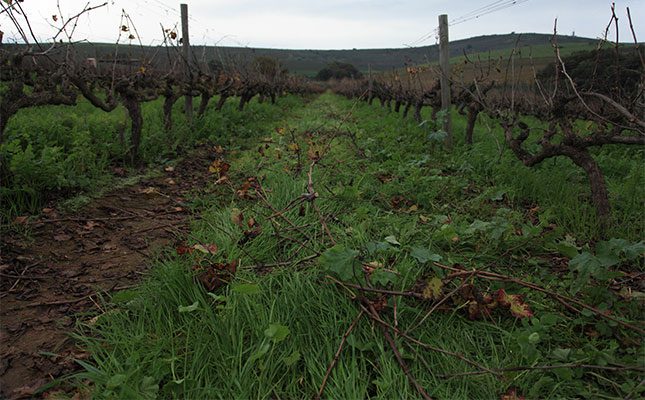
They have a distributor and sell wine through their website, as well as the occasional select deli and restaurant, but about 90% of their wines are sold directly from the estate.
“Breaking into the mainstream market is tough, as it demands large volumes and comes with high distribution costs. And because of the sheer weight of bottled wine, even online sales are expensive if you don’t have your own distribution network,” explains Karin.
For her, the most remarkable thing about the Klein Roosboom brand is that it was built entirely on organic growth: “Many people assume you need deep pockets to create a successful business, but we are living proof that you can build a successful venture from scratch. And I think you appreciate it more when you do, especially knowing that at some point, you participated in every part of the business,” she says.
For more information email Marné de Villiers at [email protected].

